Emergency / Overdose
Call or text 9-1-1 if the situation is immediately life-threatening. Our Fire and Rescue personnel carry medication that can prevent death from an opioid overdose.
Call the Fairfax Detoxification Center at 703-502-7000, available 24/7, every day of the year, including weekends and holidays. Our staff will talk with you about your options.
News
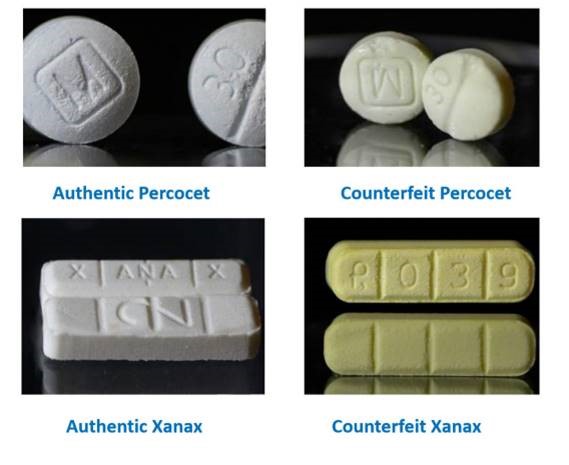 6 FENTANYL FACTS
6 FENTANYL FACTS
- Fentanyl is involved in more deaths of Americans under 50 than any other cause of death, including heart disease, cancer, and all other accidents.
- Practically all of the pills seized by law enforcement are fake, and 40% contain a potentially lethal amount of fentanyl.
- Fentanyl is involved in more American youth drug deaths than heroin, meth, cocaine, benzos and Rx drugs combined.
- Fake pills have been found in all 50 states. Assume any prescription med you see online is fake, including Oxy, Percocet, and Xanax.
- Fentanyl is cheap, potent and profitable, so dealers use it to make fake pills. It can also be found in party drugs like cocaine and MDMA.
- Illegally made fentanyl is the primary driver of the recent increase in all U.S. overdose deaths. Fentanyl-involved deaths are fastest growing among 14-23 year olds.
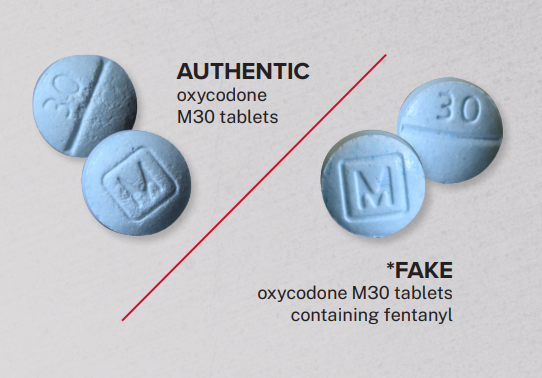
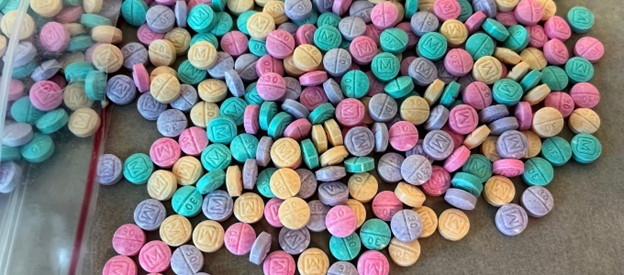
Fentanyl is extremely fatal, even in the smallest doses. Similar to national and statewide trends, most fatal overdoses in Fairfax County in recent years have involved fentanyl, which is a common substitute or cutting agent in illicit narcotics such as cocaine, heroin, MDMA (also known as ecstasy or molly), as well as counterfeit pills. According to the U.S. Drug Enforcement Administration (DEA), 2mg of fentanyl – the amount on the tip of the pencil in the photo at left- is a potentially deadly dose. In 2025, the DEA seized over 39 million fentanyl pills and 8,070 pounds of fentanyl powder, representing over 300 million deadly doses. Counterfeit pills laced with fentanyl can look the same as authentic pills, making it almost impossible to know whether a pill has a deadly dose of fentanyl or not.
Rainbow fentanyl – or fentanyl pills and powder that come in a variety of bright colors, shapes, and sizes – is also an emerging national concern, according to the U.S. DEA.
- What Parents and Caregivers Need to Know About Fentanyl
- Fentanyl and Fake Pills – Helping Families and Children Get Smart and Be Safe
- National Fentanyl Awareness Day 2025
Polysubstance Use
Polysubstance use is the use of more than one drug taken together or within a short time period, either intentionally or unintentionally.
Intentional polysubstance use occurs when a person takes a drug to increase or decrease the effects of a different drug or wants to experience the effects of the combination. Unintentional polysubstance use occurs when a person takes drugs that have been mixed or cut with other substances, like fentanyl, without their knowledge.
Whether intentional or not, mixing drugs is never safe. The effects from combining drugs may be stronger and more unpredictable than one drug alone, and even deadly. Find more information on polysubstance use in the link below.
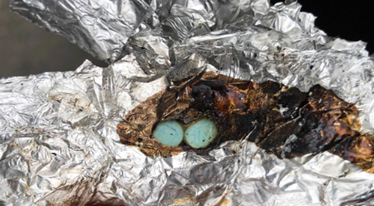 Our Police Department has found that numerous youth overdoses have involved burnt tin foil which is often used to facilitate the inhalation of the pills (other Northern Virginia jurisdictions are also observing this).
Our Police Department has found that numerous youth overdoses have involved burnt tin foil which is often used to facilitate the inhalation of the pills (other Northern Virginia jurisdictions are also observing this).
Signs of Opioid Overdose:
- Face is pale or clammy
- Breathing is infrequent or has stopped
- Deep snoring or gurgling (death rattle)
- Unresponsive to any stimuli
- Slow or no heart rate and/or pulse
- Bluish purple, or ashen skin color
- Fingernails turn blue or blue-black
What We're Doing
The Opioid Overdoses in the Fairfax Health District Dashboard provides information about opioid overdoses that are reported for Fairfax County Health District residents. While there may be differences in the risk of overdose from one person to another, everyone who uses substances or is prescribed opioids is at risk of overdose.
This dashboard will help you stay informed on the trends (up or down) of overdoses, which reflect both the size of the problem and the extent of the County’s activities to counteract the effects of the opioid overdose epidemic on county residents.
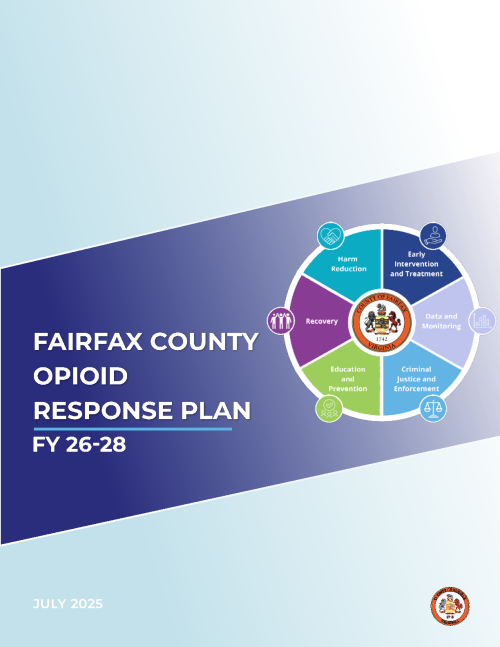
In Fairfax County, more people die from overdoses than car accidents. Data shows that treatment strategies are needed as the opioid epidemic evolves within our community.
Fairfax County's Opioid and Substance Use Task Force is a collaborative, cross-systems approach to combat the impact of the opioid epidemic.
We have a plan to combat the opioid epidemic here in Fairfax County, but we need your help as well. Note: prior opioid plans for FY 23-25 and FY 21-22 are also available for review.
Fairfax County's Opioid and Substance Use Task Force's primary goals are to: 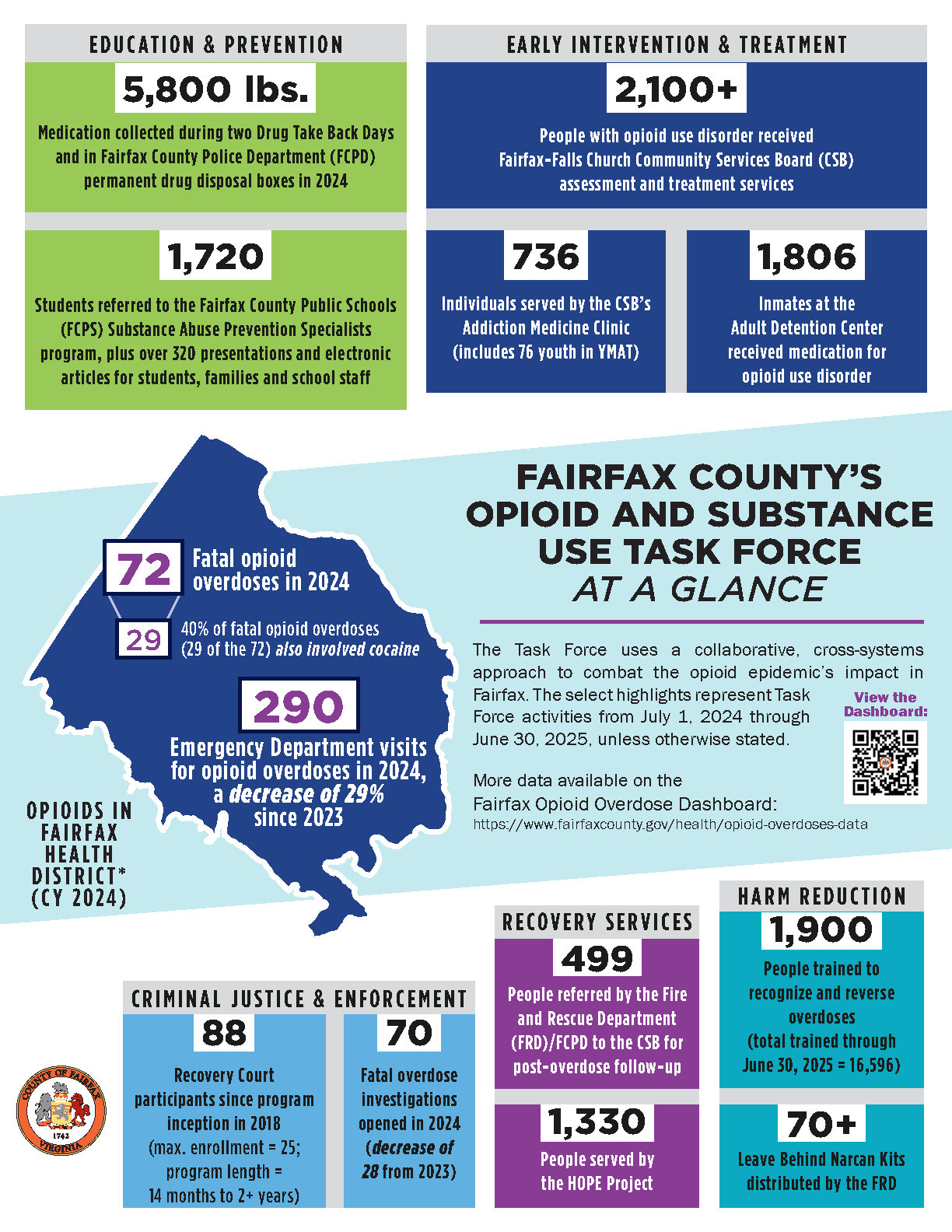
- Reduce deaths from opioids.
- Prevent opioid misuse.
- Improve the quality of life of individuals impacted by opioid use disorder.
- Use data to describe the problem, target and improve interventions and evaluate effectiveness.
What You Can Do
We need your help to fight this crisis as a community. There are a few ways you can make a difference for those in your community or somebody close to you who might be impacted.
Opioid Overdose & Naloxone Education
Please the link below the play in VLC, Quicktime, or other media player:
https://dl.ebmcdn.net/fairfax/flash/0924_OpioidOverdoseNaloxone.mp4
This video has been made available for informational and educational purposes only. Viewing this video does not make one eligible to receive naloxone from the Fairfax-Falls Church Community Services Board (CSB). If you are a Fairfax County resident and would like to receive opioid overdose response training, along with naloxone, please register and complete the Fairfax-Falls Church CSB’s Opioid Overdose Naloxone Education (REVIVE) training.
Información Sobre Sobredosis De Opioides Y Sobre La Naloxona
Please the link below the play in VLC, Quicktime, or other media player:
https://dl.ebmcdn.net/fairfax/flash/2024_OpioidOverdoseEd_SPN.mp4
Este vídeo está disponible únicamente para el propósito de educación e información. Ver este video no lo hace elegible para recibir naloxona de la Junta de Servicios Comunitarios (CSB) de Fairfax-Falls Church. Si eres residente del condado de Fairfax y deseas recibir entrenamiento sobre la respuesta a un sobredosis de opioides y naloxona, por favor regístrese y complete el entrenamiento de Educación Sobre Sobredosis de Opiodes y Naloxona (REVIVE) de Fairfax-Falls Church CSB.
4Recovery Project
This video highlights the 4Recovery Project, a collaborative effort of the Fairfax County Opioid and Substance Use Task Force. Through the 4Recovery Project, individuals encountered by the Fairfax County Police Department and Fairfax County Fire and Rescue Department are connected with the Fairfax-Falls Church Community Services Board for post-overdose follow up and support services.
Fairfax County Recovery Court
Fairfax County's Recovery Court, operating since December 2018, is an intensive program lasting 14 months to 2 years for defendants with substance use disorders convicted of non-violent crimes and probation violations. Participants voluntarily adhere to close monitoring, treatment, and regular court hearings. The program involves a team of legal and treatment professionals overseeing participants' progress.
Contact Us for More Information
Ellen Volo
Fairfax County Opioid & Substance Use Task Force Coordinator
703-324-7073, TTY 711

